Lagos, SOMLPforR moves to improve reproductive health policy
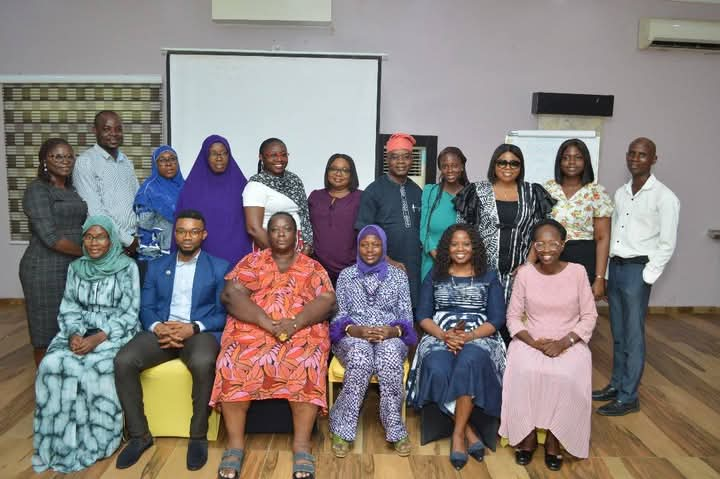
The Lagos State Government, in partnership with the Saving One Million Lives Programme for Results (SOMLPforR), is adapting the National Reproductive Health Policy (NRHP) to meet local needs. This initiative, led by the Ministry of Health, aims to improve maternal and child healthcare. The state government noted on their Facebook page on Monday that the workshop held recently saw experts from various sectors to refine the policy. Dr. Mazeedat Erinosho, SOMLPforR Programme Manager, emphasized its role in enhancing family planning, safe motherhood, and adolescent reproductive health. Erinosho stressed the need for training and regulating Traditional Birth Attendants (TBAs) to reduce complications. Dr. Kelvin Oduba, Safe Motherhood Programme Manager, highlighted tailoring the policy to Lagos’ unique healthcare challenges, including maternal mortality reduction, family planning, and gender-based violence response. Read Also: Singer Shakira hospitalised in Peru Dr. Oduba noted reproductive health extends beyond pregnancy care. Also, Dr. Olayinka Atobatele, a public health consultant, described the initiative as transformative. The updated policy aims to expand maternal and child healthcare access, benefiting teenage and older mothers alike. Stakeholders refined policy details in technical sessions. Mrs. Ruth Badejo, Director of Nursing Services, stressed bridging healthcare gaps and fostering collaboration between modern and traditional practitioners to ensure safer deliveries. The finalised policy will undergo validation, public awareness campaigns, and implementation in state healthcare facilities. To this end, experts see Lagos as a model for other Nigerian states in reproductive health policy development.
Lagos Assembly crisis: How zoning controversy is splitting Lagos politics
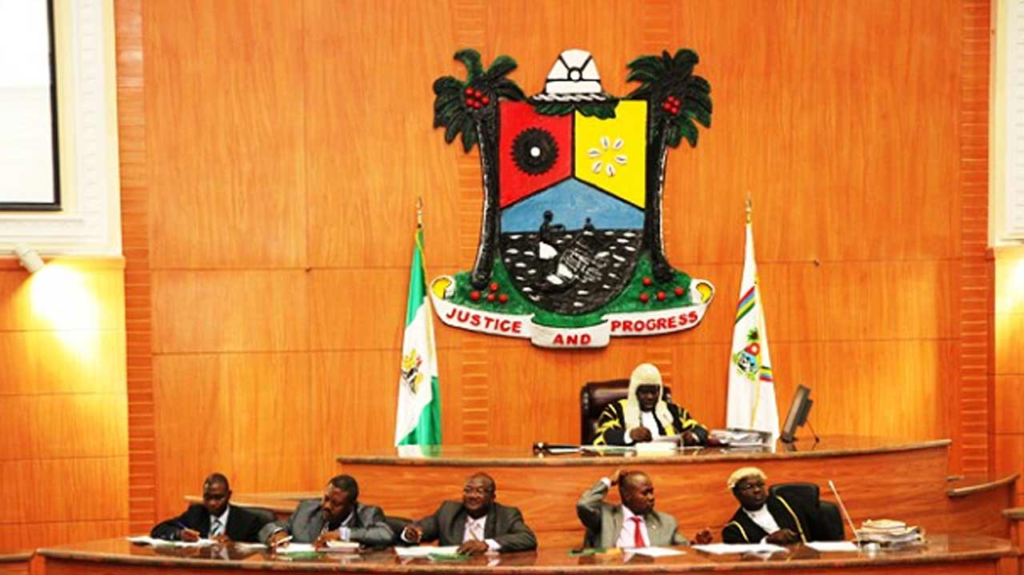
By Alade Adisa The ongoing leadership crisis rocking the Lagos State House of Assembly may create friction between Governor Babajide Sanwo-Olu and President Bola Tinubu, an investigation by New Daily Prime has revealed. Sources informed our correspondent that while Tinubu, a former governor of Lagos State, is not entirely opposed to lawmakers selecting their leaders, the main issue lies in the zoning of the new Speaker’s position. “Sanwo-Olu is from Lagos Central Senatorial District, just like the new Speaker. This disrupts the internal power-sharing arrangement among the three Senatorial Districts. Now, Lagos West, where Tinubu hails from, has no representation in the top leadership positions—Governor, Deputy Governor, or Speaker,” a source said. “When lawmakers removed Mudashiru Obasa as Speaker, they could have selected a replacement from Lagos West. However, surprisingly, some lawmakers from the district who could have filled the gap refused and instead supported Meranda, who was Obasa’s deputy,” the source added. The source explained that these behind-the-scenes maneuvers have fuelled rumours that Tinubu has asked Meranda to resign. This situation is already causing tension between the governor and the president. “Both men want lawmakers to have the freedom to choose their leaders, but zoning remains a critical issue. You can see that the Assembly has now adjourned indefinitely, and nobody knows when they will reconvene,” he stated. The source also blamed Obasa for his leadership style, which may have contributed to his downfall. “He allowed power and authority to get into his head. He did not foster good relations with his fellow lawmakers and acted as if he was superior to them. He also did not treat the Assembly workers well. You could see their jubilation when he was removed and their open solidarity with the new Speaker,” he added. Meanwhile, reports indicate that the new Speaker and her supporters were responsible for inviting the Department of State Services (DSS) to the Assembly Complex on Monday. They instructed the Acting Clerk, whom they appointed after removing the one believed to be loyal to Obasa, to draft and send the letter of invitation over the weekend. Read Also:LAGOS ASSEMBLY: Suspend Obasa for insisting he’s Speaker, lawmakers told Read Also: Sacked Lagos Speaker, Obasa sue Meranda, Lagos Assembly, seeks reinstatement
Despite Tinubu, GAC’s intervention, Lagos Assembly leadership crisis deepens
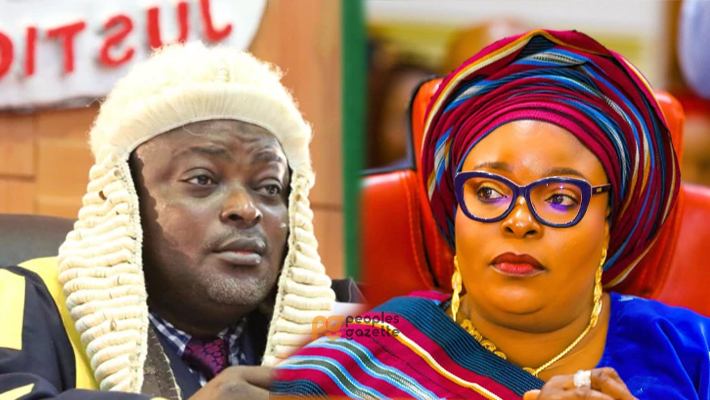
Since January 13, 2025, the Lagos State House of Assembly has been embroiled in intense drama, beginning with the abrupt removal of Speaker Mudashiru Obasa. Political analysts speculated that the removal was linked to Obasa’s ambition to succeed Governor Babajide Sanwo-Olu, though this remains unconfirmed. Despite the uncertainties surrounding the reasons for his ouster, Obasa’s removal while he was away has dramatically reshaped Lagos’ political landscape, sparking widespread debates on governance, accountability, and security. As each new development unfolds, the situation continues to captivate the attention of both the public and political analysts, shedding light on the evolving power dynamics within the state. Obasa, who had served as Speaker for over a decade and represented Agege Constituency 1, was replaced by Mojisola Meranda, who made history as the first female speaker of the Lagos House of Assembly. However, since Meranda, representing Apapa Constituency 1, assumed office, Obasa has refused to step down, continuing to address himself as the legitimate Speaker. The New Daily Prime learned that Obasa’s long tenure was largely due to his strong backing from President Bola Tinubu. His loyalty to the president and his role in holding governors accountable were key to his continued leadership. However, the political landscape shifted when it became clear that President Tinubu, reportedly dissatisfied with Obasa and unwilling to meet with him, gave the signal to the Lagos leadership to move forward with his removal—though this decision appears to have been a miscalculation. During Tinubu’s visit to Lagos over the Christmas holidays, the Governors’ Advisory Council (GAC) presented several complaints about Obasa. Reports indicate that the leadership of the Governance Advisory Council (GAC) of the Lagos APC was unable to meet with President Tinubu in person, as he was occupied with state matters, including preparations for an official visit to France. According to sources, the lawmakers did not seek the President’s approval before proceeding with Obasa’s removal. READ ALSO: Obasa remains impeached, Lagos Assembly insists Insiders revealed that Tinubu was caught off guard by the decision, finding it surprising that such a major political move was made without his involvement and that several GAC members backed it. However, it was reported that some members of the Assembly went to Abuja to meet with President Tinubu over the leadership crisis at the assembly. Although it remains unclear whether the GAC eventually met with Tinubu, it’s gathered that on February 3, members of the GAC and the Lagos State House of Assembly convened at Lagos House Marina to deliberate on Assembly-related matters. The meeting had in attendance Lagos State Governor Babajide Sanwo-Olu, Deputy Governor Kadri Hamzat, GAC leader Tajudeen Olusi, and other key members. While the official agenda was not disclosed, discussions likely included developments surrounding Obasa’s removal. While some members of the GAC viewed Obasa’s removal as illegal, he maintained that his removal was unlawful, claiming that a fake mace was used to install Meranda as Speaker. Following his impeachment, Meranda and her loyal lawmakers met with members of the GAC. After their meeting at the Lagos House in Marina, Meranda expressed her desire for the council’s approval and blessings for her new role, signaling the continued influence of the GAC in the state’s political affairs. However, Obasa alleged that police intimidation played a part in his ousting, which he argued is a common tactic in Nigerian politics. Although he has not gone to court to stop his self-proclamation as Speaker, he has openly challenged the legality of the process and vowed to continue fighting, citing similar acts of defiance against court orders in the past. Upon his return to Lagos after being away during the impeachment, Obasa addressed a crowd of supporters at his official residence in GRA, Ikeja, declaring his removal null and void. He maintained that the removal had not followed due process. His declaration was met with strong opposition from lawmakers, who urged residents to ignore his claims and warned him not to escalate tensions further. Obasa continues to assert that a fake mace was used in his removal, alleging that hundreds of policemen invaded the Assembly on the day of his ousting to intimidate his supporters. READ ALSO: Breaking: DSS reveals why it took over Lagos Assembly Complex! He further claimed that the police also invaded his official residence, preventing his family from leaving the house. Obasa pointed out that in previous instances, speaker removals were conducted in the presence of the Speaker without police interference. Despite the opposition, Obasa has vowed to return as Speaker and challenge his removal in court, leaving the question of who the legitimate Speaker is still unresolved. Bid to return In his bid to return as Speaker, Mudashiru Obasa has dragged the Lagos State House of Assembly and Speaker Mojisola Meranda to the Lagos State High Court in Ikeja, challenging the legality of his impeachment. The lawsuit, filed on February 12, 2025, is yet to be assigned to a judge, but it demands that the court declare his removal unlawful, arguing that his colleagues acted improperly by impeaching him while the Assembly was on recess. Obasa, who was out of the country at the time of his removal, insists that the removal violated his rights. Through his lawyer, Afolabi Fashanu, Obasa has requested that the court expedite the hearing of the case and set a swift date for the proceedings. He also called for a reduction in the time allowed for the defendants to file counter-affidavits or written addresses to seven days after the hearing, with a three-day deadline for the plaintiff to respond on points of law. The application, which raises nine key points, focuses on interpreting various sections of the Constitution of the Federal Republic of Nigeria, 1999 (as amended), and the Rules and Standing Orders of the State House of Assembly. Obasa is challenging the constitutionality of the Assembly’s actions during its recess, arguing that the House should not have conducted proceedings without the Speaker’s authorization or delegation of authority. The former Speaker emphasised that public interest requires
Israel keeps troops in five locations in Lebanon after deadline

On Monday, a military spokesperson announced that Israel will retain troops at several posts in southern Lebanon beyond the February 18 deadline for withdrawal. This decision comes as Israeli leaders aim to reassure residents in the northern regions that it is safe for them to return home. The initial withdrawal timeline was established under a truce agreement brokered by Washington in November, which granted Israeli forces 60 days to withdraw from southern Lebanon. This area has been the focal point of a ground offensive against Hezbollah, the armed group based in Lebanon, which began in early October. Although the deadline was extended to February 18, both Israeli and Lebanese officials, along with foreign diplomats, had anticipated that some Israeli troops would remain stationed on the Lebanese side of the border. Military spokesperson Lieutenant Colonel Nadav Shoshani emphasized the necessity of maintaining a military presence at these strategic points to protect Israeli citizens. “We need to remain at those points at the moment to defend Israeli citizens, to ensure this process is complete, and ultimately to hand over responsibilities to the Lebanese armed forces,” Shoshani explained during a briefing with reporters. He clarified that this decision aligns with the mechanisms outlined in the ceasefire agreement. The ongoing situation highlights the complexities of security in the region, where tensions remain high. As Israeli troops continue to monitor the border, the implications for both national security and regional stability remain significant. The Israeli government’s commitment to safeguard its citizens while navigating international agreements underscores the challenges faced in the volatile landscape of southern Lebanon. As developments unfold, the international community will be closely watching the situation, particularly the potential impacts on Lebanese security forces and the broader dynamics in the region.
Senator Nwoko denies marriage rumours
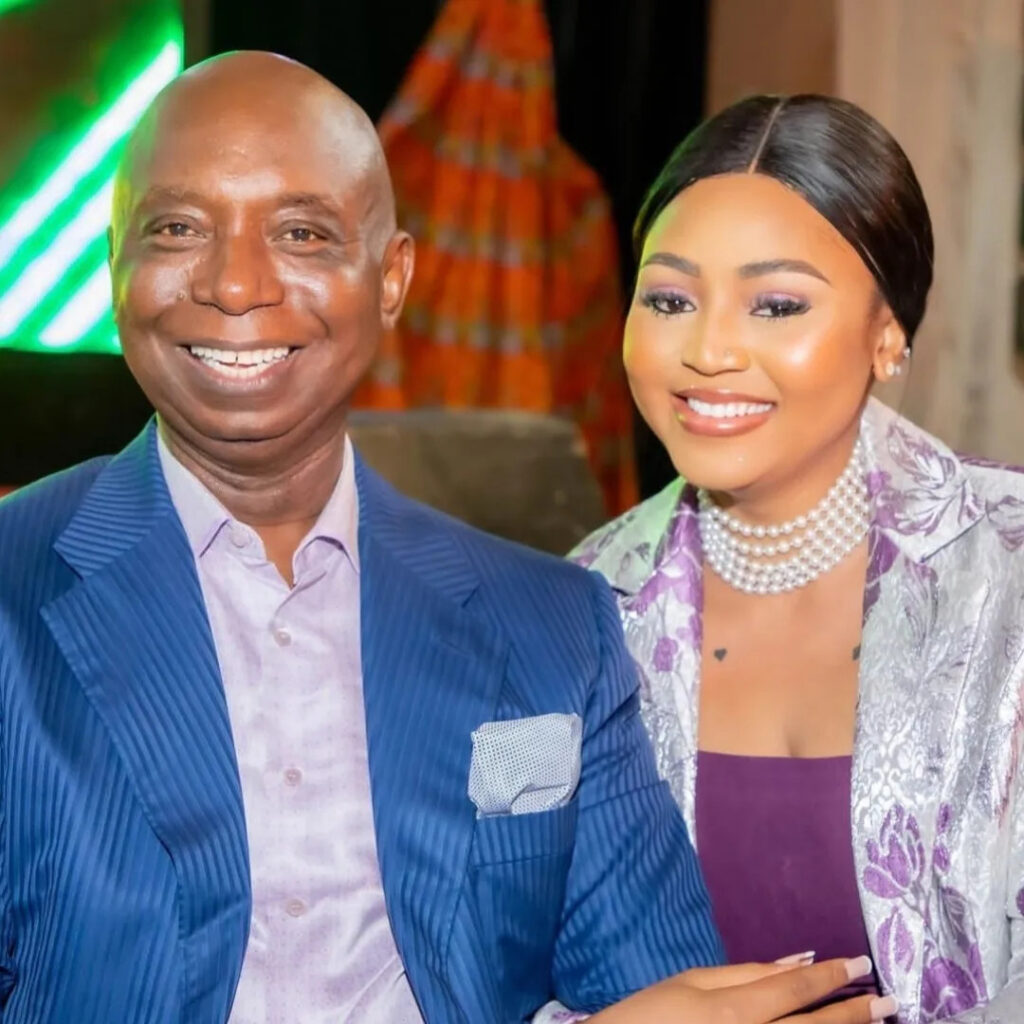
Reports claim Senator Ned Nwoko plans to marry actress Chika Ike as his seventh wife and that she is pregnant, but his office dismisses the rumours as false. However, his office has strongly denied these claims, dismissing them as baseless and misleading. Senator’s office calls rumors false In an official statement released by the Senator on his X handle, the Director of Communications for Senator Nwoko labeled the rumours as “malicious speculation.” The statement clarified that there is no truth to the claims of a new marriage or a pregnancy involving the actress. The senator’s team urged the public to disregard the false reports, stressing that they were designed to mislead and create unnecessary controversy. No comments on Tuface or polygamy The statement also refuted allegations that Senator Nwoko made remarks about Nigerian musician Tuface Idibia and the subject of polygamy. His office firmly denied that he has commented on such matters, calling any reports suggesting otherwise a fabrication. The senator’s team explained that, as a well-known public figure, Nwoko is often targeted by baseless rumors. His wife, Regina Daniels, is a Nollywood actress, making their family an easy target for media speculation. However, the office condemned the spread of false information and urged journalists and bloggers to verify their sources before publishing unconfirmed reports. Senator Nwoko focused on his duties At the moment, Senator Nwoko is fully engaged in his national duties. He remains committed to fulfilling his promises to the people who elected him. His office emphasized that he is focused on his role as a lawmaker and has no time for distractions. The statement also highlighted the growing issue of misinformation in the media. It reminded journalists and online platforms of the dangers of spreading unverified news. The senator’s office urged media professionals to prioritize accuracy and integrity in their reporting. A call for responsible journalism The senator’s team called on media organizations to seek clarification from official sources before publishing stories that could mislead the public. They stressed that fake news damages reputations and creates unnecessary tension. Readers were also advised to be cautious and to rely on official statements rather than unverified online reports. Official statement from the director of communications “Our attention has been drawn to recent false reports claiming that Senator Prince Ned Munir Nwoko is preparing to marry Nollywood actress Chika Ike as his seventh wife and that she is expecting his child. We categorically state that these allegations are entirely baseless and a product of malicious speculation. Similarly, reports suggesting that the senator commented on Tuface Idibia and polygamy are completely false. As a public figure, Senator Nwoko is frequently the subject of unfounded rumors, particularly due to his wife’s status as an actress. However, he is currently on a national assignment, fully focused on fulfilling his political mandate. He has no time for distractions. We urge journalists and bloggers to verify their sources before publishing misleading information. The spread of false news has serious consequences, and media practitioners must uphold their responsibility to report only the truth. The public is advised to ignore these rumors and rely solely on statements from the senator’s office.” Signed,Director of Communications Office of Senator Prince Ned Munir Nwoko The statement reinforces Senator Nwoko’s dedication to his duties while firmly rejecting the rumours. Read Also: Regina Daniels: Surround yourself with like-minded people
Freed hostages share insights on life in Gaza tunnels
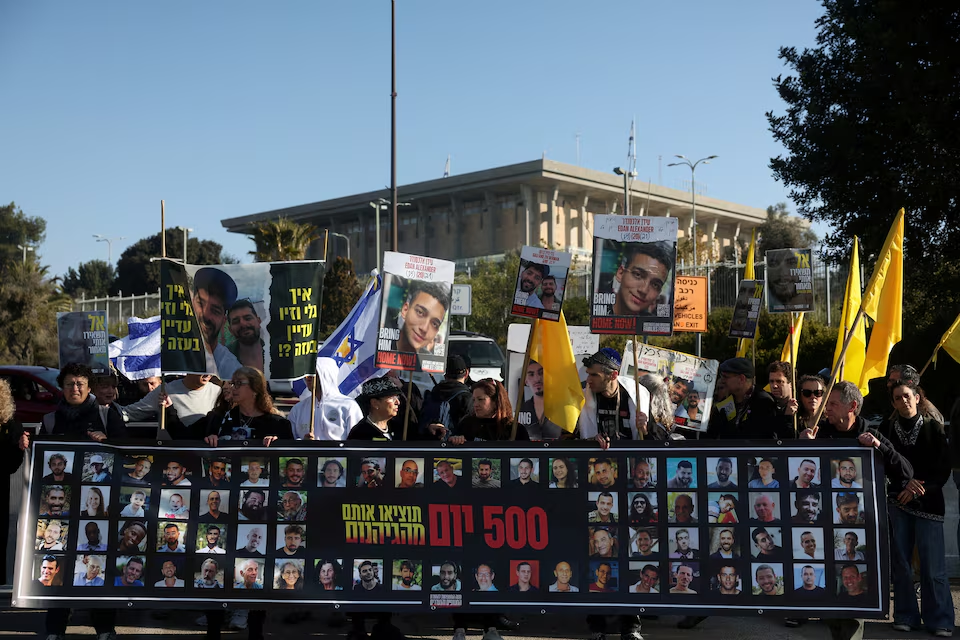
For the first time in over a year, families of Israeli hostages in Gaza have received reassuring signs of life from their loved ones, thanks to recent releases of captives during a ceasefire agreement with Hamas. In the past few weeks, the messages have come from some of the 19 Israeli hostages freed since the ceasefire took effect on January 19, bringing renewed hope and anxiety to their loved ones. These messages have not only rekindled hope for families longing to reunite with their relatives but have also heightened their fears regarding the harsh realities faced by the hostages. Reports detailing the dire conditions experienced in captivity have surfaced, particularly concerning the physical state of the hostages. The emaciated appearance of three individuals released on February 8 has deepened the families’ concerns for their wellbeing. So far, signs of life have been reported from at least ten hostages among the 251 who were kidnapped during Hamas’s October 7 attack on southern Israel, an event that ignited the ongoing Gaza conflict. One of the hostages, Elkana Bohbut, 35, was abducted from the Nova music festival. A harrowing video showing him bound and bloodied circulated on social media shortly after his kidnapping. Almost 500 days later, through a liberated hostage who had also been held in a Gaza tunnel, Elkana managed to send a poignant message to his wife, Rivka. He asked her to listen daily to an Israeli pop song titled “Warrior” as a source of strength. “500 terrible days have passed, and this week, thank God, we received a sign of life. Elkana is alive but suffering in inhuman conditions,” Rivka Bohbut stated, her voice filled with emotion. During a recent weekly hostage rally in Tel Aviv, Rivka shared her resolve, promising Elkana, “I promise you that we will not stop until you come back. We will never give up on you. Don’t break, my beloved. Soon you will be home. Soon the nightmare will be over.” Her heartfelt declaration resonated with many, underscoring the enduring hope and determination of families grappling with the uncertainty of their loved ones’ fates in Gaza. As the situation continues to unfold, the families remain steadfast in their pursuit of answers and reunification, drawing strength from the signs of life that have emerged amidst the darkness. You requested another response from @Gemini-2.0-Flash Gemini-2.0-Flash Poe Freed Hostages Offer Glimpse into Captivity, Spark Hope and Fear Recent releases of Israeli hostages held in Gaza have provided families with the first signs of life from their loved ones in over a year, delivering a mix of hope and dread. The messages, relayed by the 19 hostages freed since the January 19 ceasefire with Hamas, paint a picture of harsh conditions endured within the depths of Gaza’s tunnel network. The news has ignited a renewed sense of urgency and determination among families desperate for reunification. However, the emaciated condition of some released hostages, particularly the three freed on February 8, has amplified anxieties about the well-being of those still captive. To date, signs of life have emerged from at least 10 of the 251 individuals abducted during the Hamas-led October 7 attack on southern Israel, the event that precipitated the ongoing Gaza conflict. One such case is that of Elkana Bohbut, a 35-year-old seized from the Nova music festival. A disturbing video of him, bound and bloodied, circulated online shortly after his abduction, becoming a stark symbol of the day’s brutality. Nearly 500 days later, a freed hostage who shared a Gaza tunnel with Elkana carried a message to his wife, Rivka. Elkana requested that she listen daily to the Israeli pop song “Warrior,” drawing strength from its lyrics. “500 terrible days have passed, and this week, thank God, we received a sign of life. Elkana is alive but suffering in inhuman conditions,” Rivka Bohbot shared, her voice thick with emotion. Speaking at a weekly hostage rally in Tel Aviv, she addressed her husband directly, quoting the song back to him. “I promise you that we will not stop until you come back. We will never give up on you. Don’t break, my beloved. Soon you will be home. Soon the nightmare will be over,” she vowed, her words a blend of tears and unwavering hope. The released hostages’ accounts offer a rare and harrowing glimpse into the hidden world of captivity, underscoring the urgent need for continued efforts to secure the release of all remaining hostages. The families cling to these signs of life, fueling their determination to bring their loved ones home.
Trump administration turns to supreme court to dismiss agency head

President Donald Trump’s administration has formally requested the U.S. Supreme Court to intervene in its efforts to dismiss the head of an independent agency dedicated to protecting government whistleblowers. This marks the administration’s first legal confrontation involving Trump’s authority since he took office in January, spotlighting the ongoing tensions between the executive branch and judicial oversight. The Justice Department’s appeal seeks to overturn a federal judge’s order issued on February 12, which temporarily blocked Trump’s attempt to remove Hampton Dellinger from his position as the head of the Office of Special Counsel (OSC). This agency plays a critical role in safeguarding whistleblowers from retaliation, ensuring that those who report misconduct within the government can do so without fear of repercussions. The request for the Supreme Court’s intervention was revealed through a filing that has been reviewed by Reuters. As of now, the case has not been officially docketed by the Supreme Court, but its implications could be far-reaching. Legal experts suggest that this case may provide insight into how the Supreme Court, with its current 6-3 conservative majority, will interpret Trump’s assertive efforts to reshape the federal government, particularly in terms of removing leaders of independent agencies. Notably, three justices on the Court were appointed by Trump during his first term, potentially influencing their perspectives on executive authority. In the filing, Acting Solicitor General Sarah Harris characterized the lower court’s ruling as an “unprecedented assault on the separation of powers.” She emphasized that such judicial interventions threaten the autonomy of the executive branch. “This court should not allow lower courts to seize executive power by dictating to the President how long he must continue employing an agency head against his will,” Harris articulated, underscoring the administration’s stance that the President should have the authority to appoint and remove agency heads without external interference. The ongoing legal battle highlights the broader context of Trump’s administration, which has consistently sought to assert control over federal agencies that it views as obstructive to its agenda. The OSC, in particular, has been a point of contention, as its role in protecting whistleblowers can sometimes conflict with the administration’s goals, especially regarding transparency and accountability in government. This case is poised to draw significant attention not only for its immediate ramifications but also for its potential to set precedents regarding executive power and the relationship between the branches of government. Legal analysts are closely watching how the Supreme Court will navigate these complex issues, especially in a politically charged environment where the balance of power is a central theme. As the legal proceedings unfold, the implications for government whistleblowers and the protections afforded to them remain a critical concern. Advocates for transparency and accountability in government fear that the administration’s actions may undermine these vital protections, leading to a chilling effect on individuals who might otherwise come forward to expose wrongdoing. In conclusion, the Trump administration’s request for Supreme Court intervention represents a pivotal moment in its ongoing efforts to reshape the federal landscape. As the Court prepares to consider this case, the outcome may have lasting effects on the balance of power within the U.S. government and the protections available to whistleblowers who play an essential role in maintaining integrity and accountability in public service. The nation now awaits the Court’s decision, which could redefine the limits of executive authority in the years to come.
Nigeria, Japan strengthen ties in crackdown on cybercrime

The Nigeria Police Force (NPF) and the National Police Agency of Japan (NPA) have deepened their collaboration to tackle cybercrime, leading to the recent arrest of 11 suspects involved in online fraud. According to the NPF National Cybercrime Centre (NPF-NCCC), a joint investigation between Nigeria and Japan uncovered a criminal network that targeted Japanese citizens through identity theft, romance scams, and financial fraud. This development was made known during a press briefing held on Monday. The suspects reportedly used social media, particularly Instagram, to deceive victims into sending money, which was then converted into cryptocurrency and transferred to digital wallets in Nigeria. The operation began on April 3, 2024, when Nigerian authorities received reports linking 13 individuals to cybercrime cases affecting Japanese victims. Read Also: Police launches NPF insurance to boost personnel welfare Intensive investigations led to the arrest of 11 suspects and the recovery of $33,320, with efforts ongoing to trace more funds and dismantle the network. The Nigeria Police Force has reaffirmed its commitment to protecting citizens both locally and internationally, emphasizing the use of modern technology to track and combat cybercrime. Security agencies in both countries have pledged to continue working together to prevent further attacks and bring offenders to justice. Force Public Relations Officer, Olumuyiwa Adejobi stated that the NPF remains determined to curb online fraud and ensure a safer digital space for all. He urged the public to remain vigilant and report suspicious activities to the authorities.
Osun LG crisis: Davido tackles CP Mohammed Umar Abbar to respect law

Nigerian musician Davido has taken a bold stand, calling out a local commissioner and demanding respect for the rule of law. The post, which quickly circulated across multiple platforms, shows Davido fiercely challenging the commissioner’s actions and sending a strong message: no one, not even a government official, is above the law. A defiant messageHe wrote: “Mr. Commissioner, respect the rule of law!!! You are not madder or crazier than us!! Make we all kuku mad!! MEN MOUNT WALAI TO KRF!!! I will post you every day, everywhere Mr. Man!!! Try me, fucker,” Davido’s post boldly declared. The message, filled with emotion and defiance, has caused a stir among both his fans and critics. It marks another moment in the artist’s long history of using his platform to voice his opinions on issues that matter to him and his followers. Political tensions spark the outburstThe confrontation stems from a previous post made by Davido’s uncle, Governor Ademola Adeleke of Osun State. In that post, the governor had aimed former Governor Rauf Aregbesola and his successor, Adegboyega Oyetola, accusing them of threatening his administration. It seems the tensions surrounding local politics and governance have now spilt over, drawing Davido into the fray with his sharp words against the commissioner. The timing of the two posts suggests that the matter is deeply personal, with Davido stepping into the spotlight to defend his uncle and assert his position on legal and political matters in the region. Fans and followers react The post has sparked a wave of conversation online, with fans and social media users speculating about the reasons behind Davido’s fiery reaction. Many are questioning the commissioner’s actions or decisions that could have provoked such a strong outburst from the artist. Was it a personal vendetta or a broader disagreement about the handling of local government affairs? The mystery behind Davido’s anger has fueled widespread discussion, drawing attention from both supporters and critics. Davido’s reputation for outspokenness Davido is well-known for his outspoken nature and his willingness to confront controversial issues head-on. Throughout his career, the artist has used his massive social media following to speak out on political and social matters, often stirring debates and challenging authority. His latest post is no different. By using his platform to call for accountability and respect for the rule of law, Davido has sent a clear message to the commissioner and anyone else in power: they must be held accountable for their actions. Support and criticism The public’s response to Davido’s post has been mixed, though a significant number of fans have shown their support. Many are applauding the artist for standing up for what he believes in and using his influence to hold those in power accountable. On the other hand, some are questioning the effectiveness of such a public outburst and wondering whether this approach will lead to meaningful change or just more division. Nonetheless, the debate surrounding the post shows just how influential Davido has become in the political and social landscape of Nigeria. The commissioner’s silence The commissioner, meanwhile, has yet to respond publicly to the accusations leveled against him by the artist. This silence may only add fuel to the fire, leaving many to wonder how the situation will unfold. Will the commissioner address the claims and defend his actions, or will the matter be swept under the rug? And what will Davido do next? Will he continue to use his platform to call out the commissioner, or will the situation be resolved behind closed doors? What’s next for the controversy? As the drama unfolds, it remains to be seen whether this social media clash will escalate further or if cooler heads will prevail. His post has certainly brought attention to the issue, but whether it will lead to tangible results remains uncertain. Regardless, it is clear that the artist is committed to using his influence to speak out against injustice and demand respect for the law. Whether this confrontation has a lasting impact on local politics or fades away in time, one thing is certain: Davido’s voice will continue to be heard. Read Also: Davido: Chioma made marriage possible for me
Secret deal: U.S. bid for 50% control of Ukraine’s resources

The U.S. and Ukraine should form a joint investment fund” – A key point in the proposed deal to control Ukraine’s resources U.S. President Donald Trump has demanded repayment for the military aid and financial assistance the United States has provided to Ukraine since the start of the war with Russia. Trump insists that Ukraine should compensate the U.S. with $500 billion worth of rare earth minerals to cover the cost of American support. The US president also claimed that Ukraine had already agreed to grant the U.S. access to its natural resources, amounting to $500 billion. Experts argue that the American demand represents a greater share of Ukraine’s GDP than the reparations imposed on Germany by the Treaty of Versailles. However, the conditions under which Ukraine would accept the U.S. request remain unclear. A draft agreement that recently surfaced reportedly landed at President Volodymyr Zelensky’s office a week ago. Analysts believe that its terms amount to an economic takeover of Ukraine by the U.S. However, implementing such a demand may prove impractical and difficult to achieve. The request has caused significant concern and panic in Kyiv. According to The UK Telegraph, which claims to have accessed the draft contract dated February 7, 2025, the agreement proposes that the U.S. and Ukraine establish a joint investment fund. The fund’s purpose would be to prevent hostile actors from benefiting from Ukraine’s reconstruction efforts. The contract encompasses the economic value of Ukraine’s resources, including minerals, oil, gas, ports, and infrastructure, leaving room for additional assets to be included. It further states that “this agreement shall be governed by New York law, without regard to conflict of laws principles.” Under the terms of the agreement, the U.S. would receive 50% of Ukraine’s recurring revenues from resource extraction and 50% of the financial value of all new licenses issued to third parties for resource monetization. A lien would be placed on these revenues in favor of the U.S. “That clause means ‘pay us first, and then feed your children,’ said one source familiar with the negotiations. Additionally, the agreement grants the U.S. the right of first refusal for purchasing Ukraine’s exportable minerals. It also gives Washington near-total control over Ukraine’s resource economy, with sovereign immunity and exclusive rights to determine the terms of all future resource-related licenses and projects. Some sources speculate that private legal firms, rather than U.S. government agencies, drafted the agreement. The origins of the deal trace back to Zelensky’s visit to Trump Tower in September, during which he proposed allowing the U.S. a direct stake in Ukraine’s rare earth elements and critical minerals. Zelensky believed this would encourage American companies to establish operations in Ukraine, creating a political safeguard against further Russian aggression. Some of Ukraine’s most valuable mineral deposits lie near the frontlines or in Russian-occupied territories. Zelensky has emphasized the risks of allowing strategic reserves of titanium, tungsten, uranium, graphite, and rare earth minerals to fall into Russian hands. “If we are talking about a deal, then let’s do a deal; we are open to it,” he stated. However, the stringent conditions imposed by the draft agreement resemble punitive measures typically reserved for defeated nations. Experts argue that the terms are even harsher than the reparations imposed on Germany and Japan after World War II. Notably, both countries eventually became net recipients of funds from their former adversaries. If accepted, Trump’s demands would require Ukraine to relinquish a greater portion of its GDP than Germany did under the Treaty of Versailles, which was later adjusted by the London Conference in 1921 and the Dawes Plan in 1924. Ironically, Trump appears willing to let Russia off the hook entirely. In an interview with Fox News, Trump asserted that Ukraine had “essentially agreed” to the $500 billion repayment plan, stating: “They have tremendously valuable land in terms of rare earths, oil, and gas, among other things.” He warned that rejecting the deal could leave Ukraine vulnerable to Russian control. “They may make a deal. They may not make a deal. They may be Russian someday, or they may not be Russian someday. But I want this money back,” he added. Trump also claimed that the U.S. has already spent $300 billion on the war effort. However, official records indicate that the total aid approved by Congress amounts to $175 billion, with $70 billion allocated to domestic weapons production. Some funds were given as humanitarian grants, while others were structured as lend-lease assistance, requiring repayment. Republican Senator Lindsey Graham suggested during the Munich Security Conference that Trump’s proposal might be a strategic move to boost declining support for Ukraine within the U.S. “He can tell the American people that Ukraine is not a burden but a benefit,” Graham stated. Graham also urged European allies to support the deal, arguing that it would ensure Washington remains committed to Ukraine’s defense. “If we sign this minerals agreement, Putin is in trouble because Trump will defend the deal,” he added. Ukrainian officials, however, have been cautious in their response, treading carefully in diplomatic discussions. At the Munich forum, they acknowledged the potential benefits of a resource partnership with the U.S. while also stressing that the current draft agreement violates Ukrainian law and requires modifications before it can be approved. Indeed, the outcome of this negotiation remains uncertain. Read Also:Trump: No more free aid—U.S. wants Ukraine’s resources in return Read Also:Kremlin awaits Putin-Trump meeting amid Ukraine conflict Read Also:US officials push to exempt Ukraine from Rubio’s foreign aid freeze



